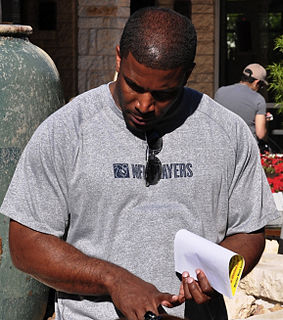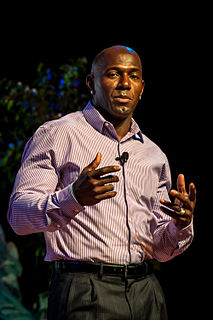A Quote by Priest Holmes
Chess is a time game, it’s a game of patience. That pretty much defines how I run the ball.
Related Quotes
...chess is "a lot like football because you have to set up your offense and your defense, every once in a while you need to give up a piece of your team in order to make the big play. It's a game of patience, and that pretty much defines how I run the ball. I'm patient, always looking for the opportunity and always trying to capitalize on the other person's mistake."
Chess is more than a game or a mental training. It is a distinct attainment. I have always regarded the playing of chess and the accomplishment of a good game as an art, and something to be admired no less than an artist's canvas or the product of a sculptor's chisel. Chess is a mental diversion rather than a game. It is both artistic and scientific.
If you're playing for 10 or 15 years, you can't every week run six option plays. It can be around. It can be a part of the game, but sooner or later you've got to deliver the ball from the pocket. That's the game. Now, if the game changes, and it's proven a championship can be won from the pistol spread, then I'm wrong.
All experiments that are related to the games when you have humans versus machines in the games - whether it's chess or "Go" or any other game - machines will prevail not because they can solve the game. Chess is mathematically unsolvable. But at the end of the day, the machine doesn't have to solve the game. The machine has to win the game. And to win the game, it just has to make fewer mistakes than humans. Which is not that difficult since humans are humans and vulnerable, and we don't have the same steady hand as the computer.


































